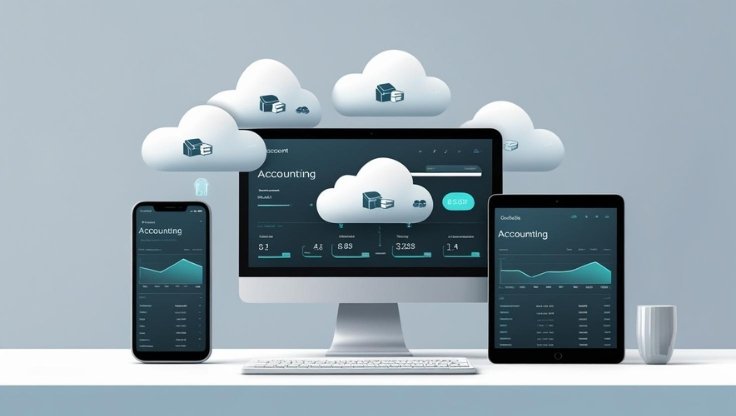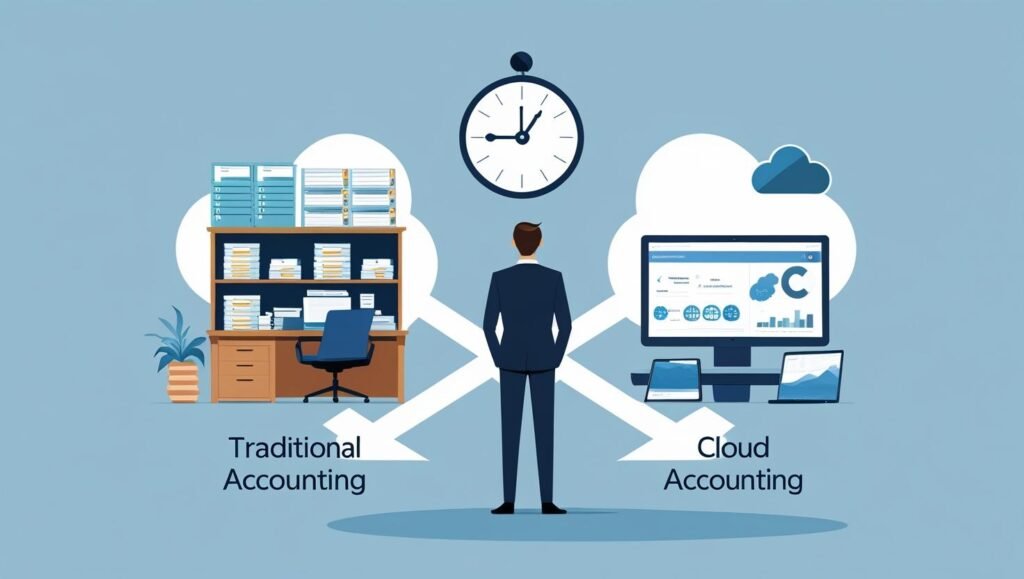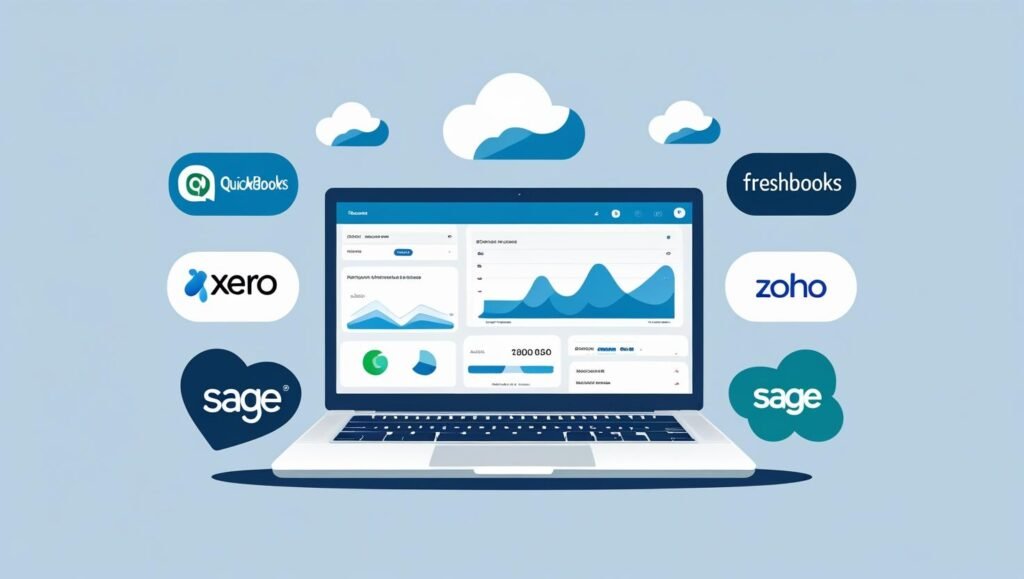Businesses are continuously looking for creative ways to improve their operations and stay competitive in today’s quickly changing digital landscape. Cloud accounting is one such development that has revolutionized business financial management. The question of whether it’s time to move to cloud accounting is relevant as more businesses adopt cloud-based solutions.
This article explores the idea of cloud accounting, including its advantages, possible disadvantages, and important things to think about before switching. This article will assist you in determining whether cloud accounting is the best option for your company, regardless of whether you are a financial executive at a large corporation or the owner of a small business.
What is Cloud Accounting?

Cloud accounting means using accounting software that is stored on remote servers (the cloud) instead of being installed on computers in the office. Users can get to financial information and do accounting tasks online from any device that has a web browser and an internet connection.
Cloud accounting software is different from traditional accounting systems since it doesn’t need manual updates or physical backups. Instead, it gives you real-time access, automatic updates, and seamless data backup, all hosted securely online.
Benefits of Cloud Accounting

1. Real-Time Access and Collaboration
Cloud accounting allows more than one person to access and change financial data at the same time. This makes it possible for accountants, bookkeepers, and business owners to work together in real time, no matter where they are.
• Enable people work remotely and lets teams work together from all over the world
• Cuts down the time to share data
• Enhance transparency and makes things more open and accountable
2. Cost Efficiency
Because the majority of cloud accounting software is subscription-based, there is no need for expensive upfront IT infrastructure investments. Clouds accounting helps as;
• Pay-as-you-go models of pricing
• Less money spent on upgrades and maintenance
• Less need for internal IT support
3. Automatic Updates and Backup
The ability of cloud accounting platforms to update software automatically is one of their best features; it guarantees that users always have access to the newest features and compliance tools.
• Automatic data backups reduce the chance of data loss
• No manual installations are required
• Integrated adherence to tax laws and regulations
4. Scalability
As your business grows, so do your accounting needs. Cloud-based systems can easily grow to handle more users, more transactions, and new modules. With cloud-based systems, you can;
• Add features as needed
• Change subscription plans
• Have great deal for both small businesses and big companies
5. Enhanced Security
Cloud service providers spend a lot of money on cybersecurity, and their data protection is often better than that of on-premises solutions. It’s like;
• Encryption of data
• Two-factor authentication
• Regular security audits and plans for recovering from disasters
Challenges and Considerations

Cloud accounting has many benefits, but it also has some problems. Businesses need to think carefully about these things before making the switch.
1. Dependence on online resources
A fast and stable internet connection is very important because cloud accounting is done over the internet. Any problems with connectivity can disrupt access to financial data.
2. Data Privacy Concerns
Cloud providers make sure that security is very high, but some businesses may be worried about data privacy, especially those that deal with sensitive financial information.
3. The Learning Curve
Staff may need training to switch to a new system, especially if they are used to traditional desktop software.
4. Limits on integration
Some cloud accounting systems may not work well with other business apps that are already in use, which could cause problems with the workflow.
Is It Time to Make the Switch?

There is no one-size-fits-all approach to moving to cloud accounting. Consider the following factors to help you determine whether it’s the right time for your business:
1. Seeking Flexibility
Cloud accounting offers the accessibility and collaboration capabilities required for effective financial management if your team operates remotely or in multiple locations.
2. Business is Growing
Cloud systems provide the features and flexibility required to manage growing financial complexity as your business grows without requiring significant IT investments.
3. Real-Time Insights
Decision-making and strategic planning can be greatly enhanced by the real-time financial data and reports that cloud accounting provides.
4. Need to Improve Efficiency
Bank feeds, automated invoicing, and integration with payroll and tax software minimize manual labor and increase accuracy.
Popular Cloud Accounting Solutions

Several leading cloud accounting platforms dominate the market, catering to businesses of all sizes. Some of the most popular include:
• QuickBooks Online – Ideal for small to mid-tier businesses
• Xero – User friendly and excellent for real-time collaboration
• FreshBooks – Great for freelancers and service-based businesses
• Zoho Books – Offers robust features at a competitive price
• Sage Business Cloud – Trusted by larger enterprises for advanced functionality
Final Thoughts

Without a doubt, cloud-based accounting is the way of the future. With advantages like cost savings, increased security, real-time access, and better teamwork, cloud accounting is becoming an essential tool for modern businesses. However, it is crucial to carry out a comprehensive evaluation of your company’s requirements, available resources, and expansion strategies before making the switch.
This could be the ideal moment to switch to a cloud accounting solution if you value efficiency, flexibility, and data-driven decision-making. Financial management’s digital transformation is now a strategic requirement rather than a passing trend.
Excellent article in light of current era of technology and development.